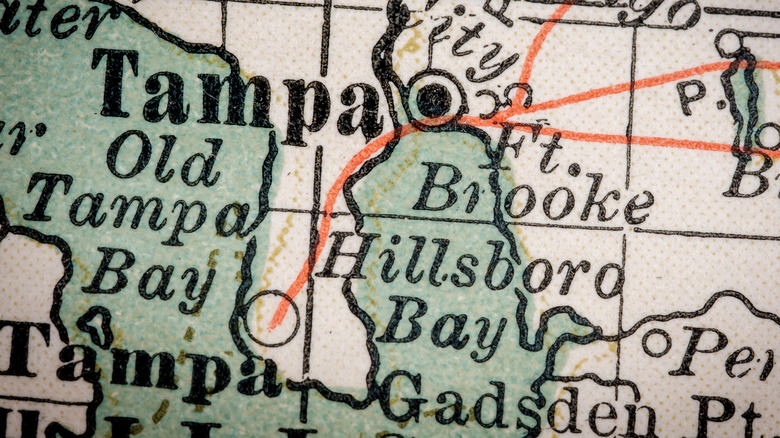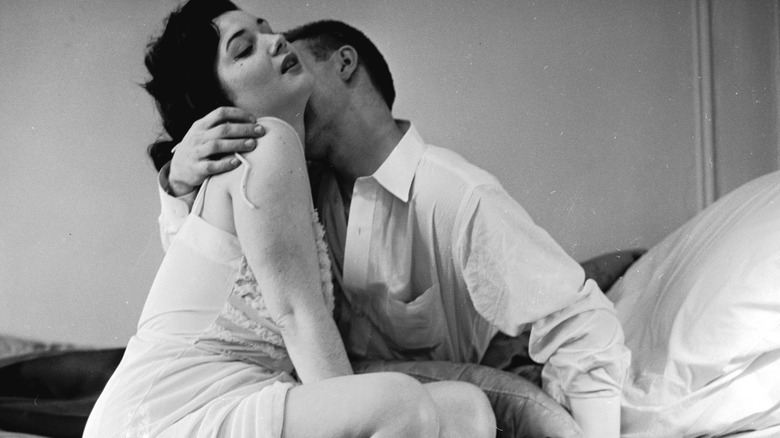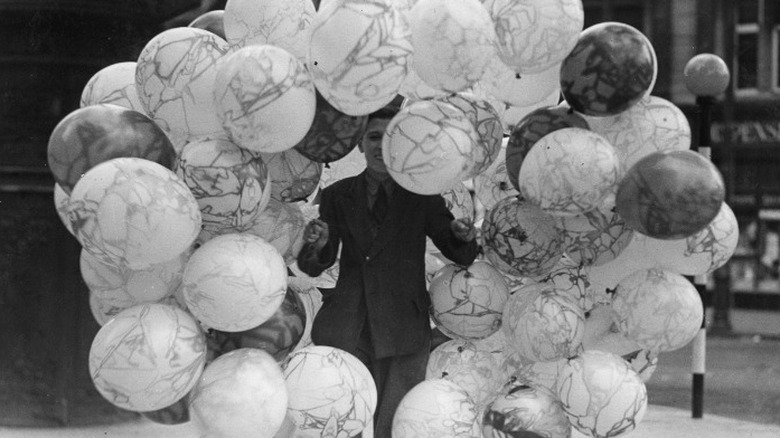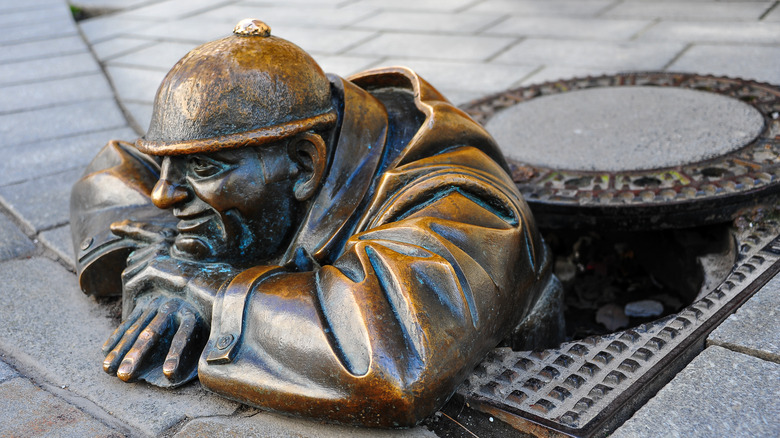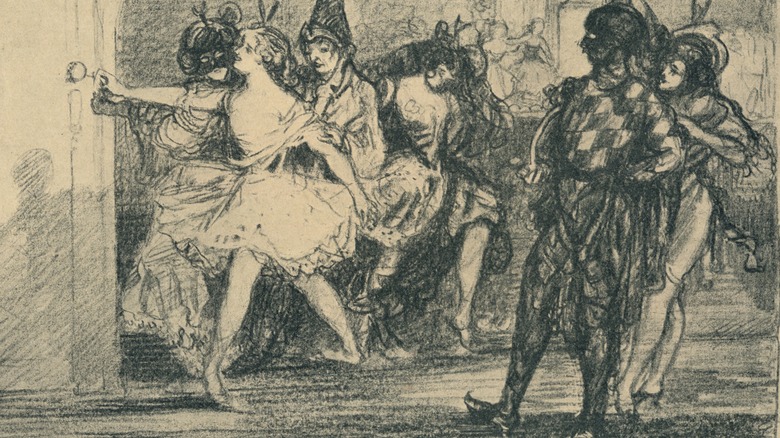Weirdest Laws In Florida
You've probably heard of "Florida Man," the archetypal figure whose bizarre antics have earned the state its online infamy as the capital of all things weird. While Florida Man is subject to legal fines and penalties for much of his lawless conduct (see his entry on Know Your Meme), even your ordinary Florida resident could be found breaking some of these laws you probably didn't know existed.
Nearly every state has dozens of antiquated laws still on the books (via Vox), and Florida is no exception. All of these laws are still in existence, and you can technically be prosecuted (although this rarely occurs). Each of them might have their own unique origin story, and it's possible, if not probable, that we have the misbehaving Florida Men of decades past to thank for their existence. Here are some of the weirdest laws in Florida you've probably never heard of, which are particularly shocking for a state that's not too big on laws to begin with.
Banned: adultery
According to NPR, 28% of women and 41% of men say they've "thought about" cheating on their spouse. Whoever wrote Florida Statute 798.02 was ready to slap adulterers with consequences. According to the law, "living in open adultery" is a class two misdemeanor, rendering it punitively equivalent to driving with a suspended license or committing petty theft, both class two misdemeanors under Florida law. Class two misdemeanors can technically be punishable by up a $500 fine, six months' probation, and up to 60 days in jail (via Florida State Legislature's statute on "General Penalties").
A similar 1868 law banning unwed cohabitation was overturned in 2016 by then-governor Rick Scott (via Orlando Sentinel), but the law against adultery remains on Florida's books. According to Pew Research Center data reported by CNBC in 2016, approximately 18 million unmarried adults in the United States cohabitate. This marked a 27% jump over a nine-year span, so it makes sense this law would be overturned, lest we criminalize half the state's residents.
Exact statistics on adultery are not so readily available, but a 1990s study by the National Opinion Research Center (cited by U.S. News & World Report) found that 15% to 18% may have violated this law — although perhaps not openly.
Banned: releasing 10 or more balloons
According to Florida Statute 379.23, releasing 10 or more balloons is prohibited by law. There are exceptions, however, if the balloons are biodegradable, they are part of a scientific or meteorological project, they're hot air balloons, or they will be released indoors. Additionally, you may petition the court for permission to release more than 10 balloons on a special occasion. The penalty for violating this law is a noncriminal infraction with a $250 fine.
This law was passed in 2012 and is included in the legislative chapter on fish and wildlife conservation. The reasoning for this ban is actually pretty wholesome: "release into the atmosphere of large numbers of balloons inflated with lighter-than-air gases poses a danger and nuisance to the environment, particularly to wildlife and marine animals."
For a coastal state, this law makes sense. The Ocean Conservation Society reports over 100,000 marine mammals die each year from plastic debris, and balloon fragments pose a particular risk for sea turtles due to their food-like appearance, often resulting in stomach blockages from swallowing, and even starvation.
Banned: 'Being a Peeping Tom'
Although most states and localities ban "public indecency" or "spying," the language varies and is often odd. Satellite Beach, Florida, specifically bans "being a peeping tom" in its legislation. The Satellite Beach Code of Ordinances Sec. 38-3 (Code 1976, §§ 14-30, 14-31), titled "Peeping toms," says: "Any person who enters on or about the property of another and spies or looks through the windows, transoms or doors is hereby defined as a peeping tom. No person shall be a peeping tom."
The euphemism "peeping tom" originates from a centuries-old myth. In the myth, all citizens agreed not to look at Lady Godiva as she rode naked around the town of Coventry. One man, however, did not keep this promise: his name was Tom, and he peeped (via Phrases.co.uk). "Peeping Tom" became a term for a voyeur who invades the privacy of others for lewd purposes without the consent of the person they observe.
Banned: eating cottage cheese after 6 p.m. on a Sunday
Often referred to as "blue laws," hundreds of laws still exist across the United States banning certain activities from taking place on Sundays (via World Population Review). Sunday, in Christian tradition, was considered to be a day of rest, and this religious decree was often taken so seriously in the past that there were civil legal codes enforcing it. Many of these laws pertain to alcohol sale and consumption, but they can pertain to anything, including cottage cheese.
In Tampa Bay, Florida, for example, residents are absolutely prohibited from eating cottage cheese after 6 p.m. on Sundays, as the Florida Independent and South Florida Sun-Sentinel report. Florida has an entire subsection of "cottage food law" (via Florida Department of Agriculture and Consumer Services) regulating the preparation and sale of at-home foods, but it's unclear if the regulations on cottage cheese consumption are related or if they are some kind of restriction on the Sabbath-day labor implied.
Banned: musicians 'mingling' with fans
The Miami County Code of Ordinances contains a specific section pertaining exclusively to "dance halls and ballrooms." In addition to varying requirements on licensing, permits, alcoholic beverage limitations, and operating hours, legislators took the time to outline specific provisions for proper conduct between "entertainers" and members of crowds. Specifically, the law instructs that there shall be no mingling between "dance instructors" or "entertainers" and attendees or dance participants.
The text of (Code 1967, § 4-46; Code 1980, § 5-81) Sec. 5-45, titled "Dancehalls and Ballrooms: Employees mingling with customers," reads: "It shall be unlawful for employees or entertainers in dancehalls or ballrooms to mingle or fraternize with the customers or patrons of such establishments, except when actually providing dance instruction to such customers or patrons."
The law references another city code prohibiting nightclubs from permitting their entertainers to "contact or associate with" nightclub patrons or guests. This is undeniably bad news for all Miami groupies who were hoping to catch the eye of a cute guitarist.
